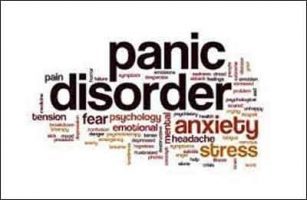- Home
- Editorial
- News
- Practice Guidelines
- Anesthesiology Guidelines
- Cancer Guidelines
- Cardiac Sciences Guidelines
- Critical Care Guidelines
- Dentistry Guidelines
- Dermatology Guidelines
- Diabetes and Endo Guidelines
- Diagnostics Guidelines
- ENT Guidelines
- Featured Practice Guidelines
- Gastroenterology Guidelines
- Geriatrics Guidelines
- Medicine Guidelines
- Nephrology Guidelines
- Neurosciences Guidelines
- Obs and Gynae Guidelines
- Ophthalmology Guidelines
- Orthopaedics Guidelines
- Paediatrics Guidelines
- Psychiatry Guidelines
- Pulmonology Guidelines
- Radiology Guidelines
- Surgery Guidelines
- Urology Guidelines
Antidepressants moderately effective in panic disorder

Panic disorder is common in the general population with a lifetime prevalence of 1% to 4% and its treatment includes psychological and pharmacological interventions.Pharmacological options approved by current guidelines for the treatment of panic disorder (PD) include mainly selective serotonin reuptake inhibitors (SSRIs), as the first-line treatment for panic disorder. However, a systematic comparison of newer antidepressants for the treatment of PD is lacking thus far. Bighelli I, et al.conducted a Cochrane Database Systematic Review and colleagues conducted Study to evaluate which antidepressants have a more or less favourable profile in terms of effectiveness and acceptability in the treatment of the Panic disorder.
They also tried to assess the effects of antidepressants for panic disorder in adults, specifically:1. to determine the efficacy of antidepressants in alleviating symptoms of panic disorder, with or without agoraphobia, in comparison to placebo;2. to review the acceptability of antidepressants in panic disorder, with or without agoraphobia, in comparison with placebo; and 3. to investigate the adverse effects of antidepressants in panic disorder, with or without agoraphobia, including the general prevalence of adverse effects, compared to placebo.The researchers found that antidepressants may be more effective than placebo in treating panic disorder.
The investigators conducted a systematic review and evaluated the effects of antidepressants for panic disorder in adults.The study included 41 double-blind, randomized controlled trials (n=8252; 49 placebo-controlled groups).They found that in the review, 41 trials shows antidepressants are more effective than placebo in alleviating panic disorder symptoms, with a number needed to treat of 7 to achieve some benefit.There were more dropouts among antidepressant users than in placebo groups.In terms of failure to respond, antidepressants were more effective than placebo (risk ratio [RR], 0.72; 95% CI, 0.66-0.79; n=6500; 30 studies).The number needed to treat for an additional beneficial outcome was 7 (95% CI, 6-9).
The researchers concluded that antidepressants may be more effective than placebo in treating panic disorder. Efficacy can be quantified as an NNTB of 7, implying that seven people need to be treated with antidepressants in order for one to benefit. Antidepressants may also have benefit in comparison with placebo in terms of a number of dropouts, but a less favourable profile in terms of dropout due to adverse effects. However, more studies are needed to determine whether the effect of antidepressants is maintained or transient.
For more details click on the link : DOI: 10.1002/14651858.CD010676.pub2

Disclaimer: This site is primarily intended for healthcare professionals. Any content/information on this website does not replace the advice of medical and/or health professionals and should not be construed as medical/diagnostic advice/endorsement or prescription. Use of this site is subject to our terms of use, privacy policy, advertisement policy. © 2020 Minerva Medical Treatment Pvt Ltd